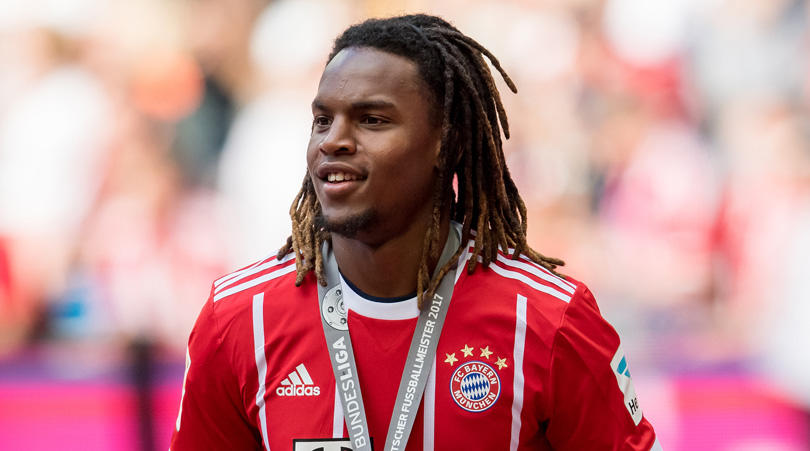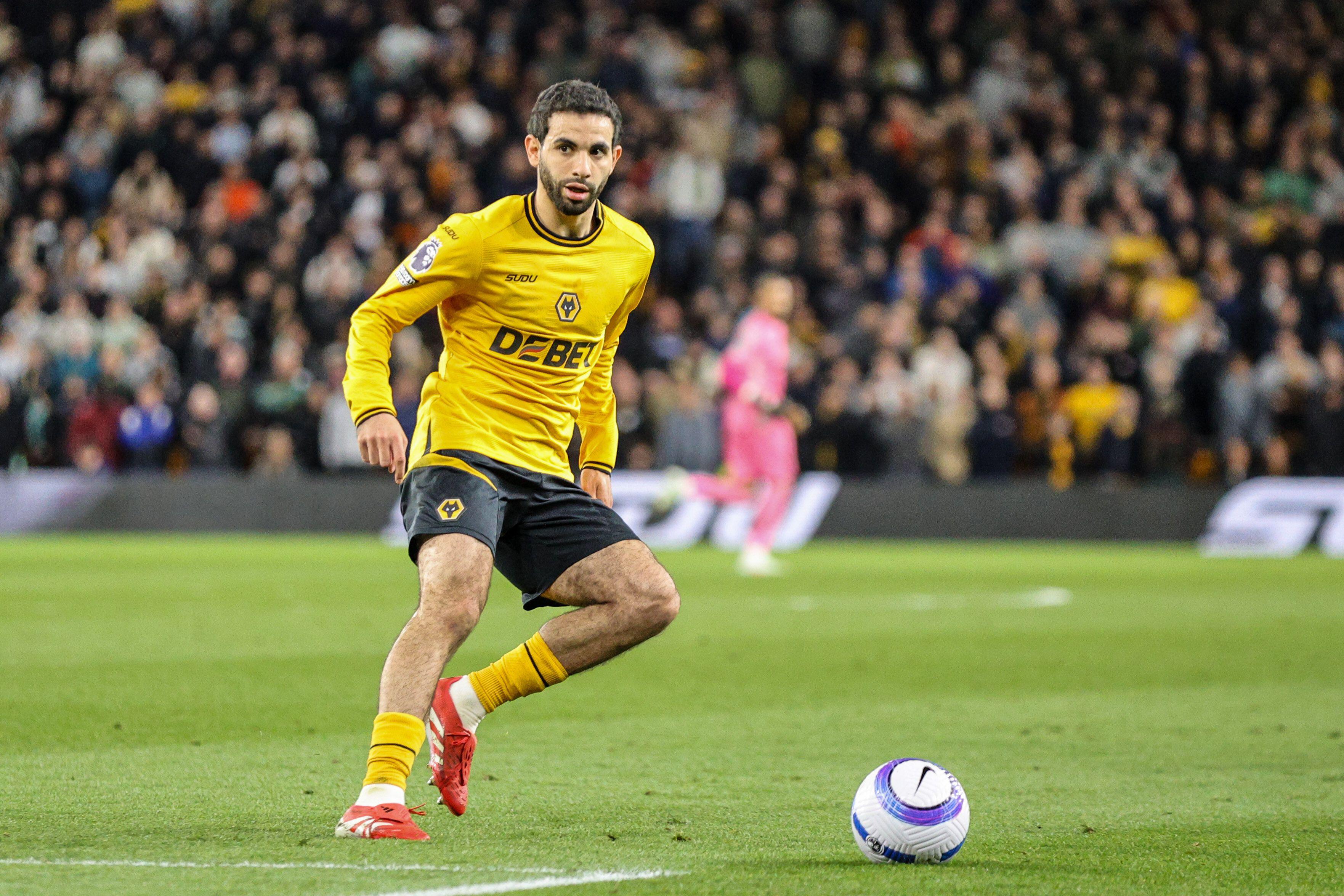9 stars who enhanced their reputations at the European U21 Championship
Spain’s attacking tyros, Germany’s cultured midfielders and an old-fashioned England central defender all impressed this summer, as Seb Stafford-Bloor reports
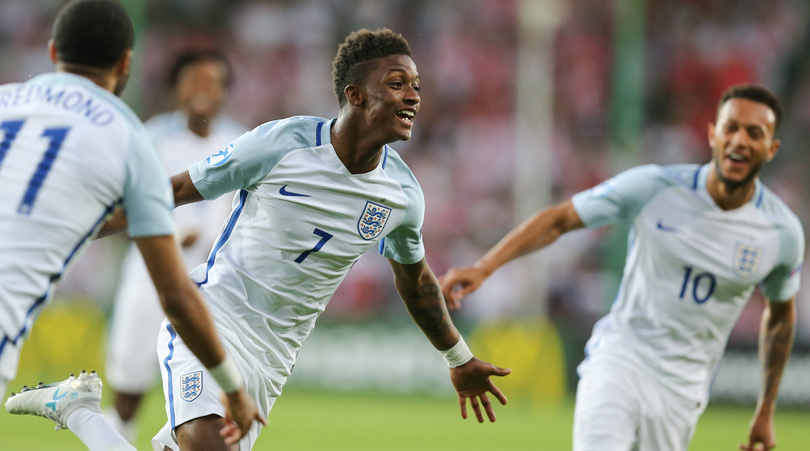
1. Marco Asensio (Spain)
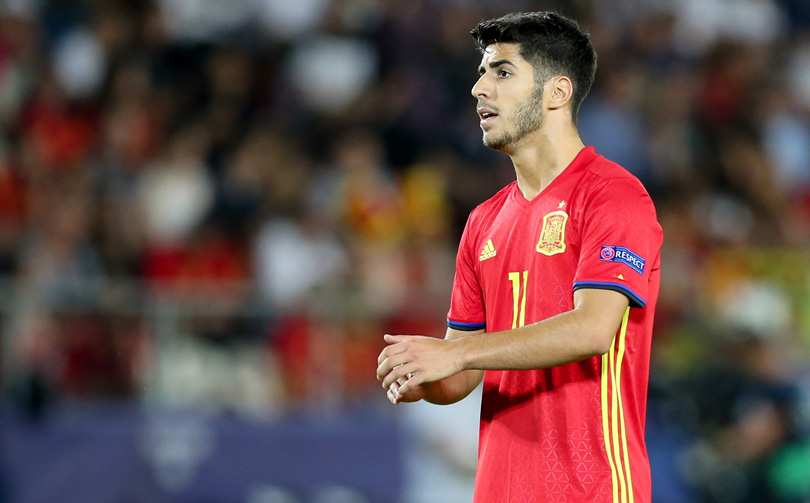
The world was already aware, but Asensio really is a wonderful player and, surrounded by Real Madrid’s blinding galaxy of stars, he could become a truly special one.
His style of play is so smooth and so mesmerising that the real joy is in watching him with the ball at his feet – and what he actually achieves with it almost secondary. The 21-year-old glides around the field, his studs barely touching the grass, and was a pleasure to watch in Poland. The crowds agreed: when Asensio received possession and drove at defenders, the anticipation was palpable.
Inevitably, the Germans targeted him in the final, limiting his involvement and restricting his touches to only the widest areas. It was a shame, because he was the competition’s most watchable player and neutrals were denied that last dance, but his career will bring bigger and better days.
2. Maximilian Arnold (Germany)
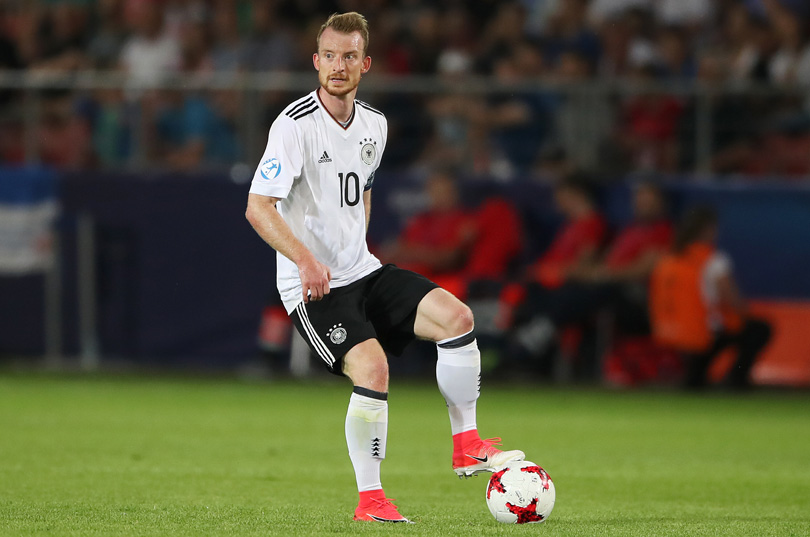
Arnold offers more than just a cultured left foot and an eclectic set-piece range. The Germans were expected to reach the final, but to overcome the talent gap they faced when they got there, they had to rely on a midfield performance of near perfection. Arnold, alongside Max Meyer and the deeper-lying Janik Haberer, helped to give it.
The side’s strength was obvious. Germany depended on their midfield to control games, but few believed that such influence could extend to subduing Spain and their ludicrously diverse attack. But it did, and Wolfsburg's Arnold was emblematic of the delicate balance between remaining impenetrable in their own half and offering enough of a threat at the other end for the Spanish to feel unable of commiting too many men forward.
Get FourFourTwo Newsletter
The best features, fun and footballing quizzes, straight to your inbox every week.
The great German weapon in these championships was their counter-attack. It was swift, but beautifully effective; rather than relying on simple pace, it was testament to the value of moving possession precisely and decisively with educated movement off the ball.
The 23-year-old Arnold wasn’t the competition's outstanding player, but he was integral to everything that the winning side did well.
3. Milan Skriniar (Slovakia)

Not that many will care to remember that night, but Skriniar actually snuck on during the closing stages of England’s dire goalless draw against Slovakia at Euro 2016.
He was impressive this summer and certainly the best pound-for-pound centre-back England’s U21s encountered in Poland. Aidy Boothroyd’s team may have won that game 2-1, but they were locked out of the Slovakian penalty box for most of it and had to rely on a goalkeeping error and a swift counter-attack for their points. Skriniar was culpable for neither goal.
He’s certainly someone to watch. After 18 months at Sampdoria, the 22-year-old is signing for Inter this summer and quietly building a fine reputation in Serie A.
4. Alfie Mawson (England)

The iron in England’s defence, Mawson’s partnership with Calum Chambers was key to the team’s survival in Poland. And it was a survival, too: England played much of their best football on the counter-attack and their defence took heavy shelling in all four games.
Mawson is already an established Premier League player at Swansea, but this tournament accentuated his value as a leader. Booming out the national anthem pre-game and delivering media-friendly platitudes only counts for so much, though, so it was heartening to see his character also carry weight on the field.
Probably the most aerially dominant defender at these championships, the 23-year-old strived to put his head on every incoming cross and was in position for - and prepared to make - every tackle.
All typically English qualities, right? All to be sneered at and dismissed? Not so fast. Mawson may not be the most modern defender, but that literal interpretation of his job description was of great value to his side and, more importantly, comprises a set of fundamental attributes which will never become irrelevant.
5. Dani Ceballos (Spain)
The official player of the tournament, and not without good reason. Spain may have been upended by Germany in the final, but Ceballos's body of work across the tournament merited the award.
Whether he can consistently influence a game as a senior is another matter, but it was telling that even in that final – during which the German midfield and defence managed to smother Spain up until that point – Ceballos still looked lethal. The 20-year-old came closest to equalising, surging past three defenders before arrowing a shot just past Julian Pollersbeck’s far post.
His sharp trajectory and a €15m release clause tends to suggest only one outcome for his immediate future – Real Madrid, apparently – but for as long as he remains at Real Betis, they have a player of immense ability.
6. Max Meyer (Germany)
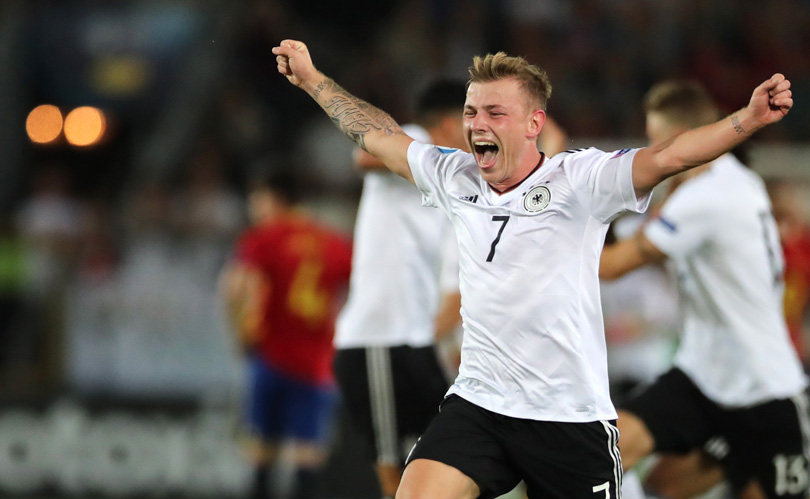
This summer marks the next stage of the 21-year-old Mayer’s career: he’s determined to leave Schalke and will surely land at a prominent European club. To that end, his strong showing in Poland has occurred at the ideal moment, providing a timely showcase of all the strongest parts of his game.
The Germans were highly functional, which is to the credit of manager Stefan Kuntz, but Meyer has played his role at the tip of a midfield three particular well. A diminutive player who skips out of tackles, his greatest strength is his timing and ability to keep a defence off balance. Germany won the tournament not just because of overwhelming individual talent, but rather that their system extracted the most from what they had. Meyer enabled that too, finding the vulnerabilities in an opponent’s structure and manufacturing opportunities for his team-mates.
He’s not the best finisher (his blood temperature appears to rise when he's in the box), but that’s a curable defect which doesn’t detract from what is already an accomplished attacking midfielder. Both Tottenham and Liverpool appear to have taken notice.
7. Saul Niguez (Spain)
One of the issues Spain boss Albert Celades had to overcome at this tournament was how to fit all of his attacking pieces into the same side. Ironically, that was a problem which allowed Saul to develop his reputation. While Atletico Madrid fans are more often used to seeing him play from wide, he was typically deployed centrally in Poland - and, to his credit, adapted seamlessly, looking every inch the complete midfielder.
The 22-year-old played with real authority, striding through the midfield, rationing his game between the two halves and also managing to finish as top scorer – doing so with four of the tournament's best goals.
Defeat against Germany meant that Poland 2017 didn’t end as it was supposed to for Saul and his impressive team-mates. What it did, however, was demonstrate the range of his ability. Watching his further evolution under Diego Simeone will be fascinating. How does a nine-year contract sound?
8. Jeremy Toljan (Germany)
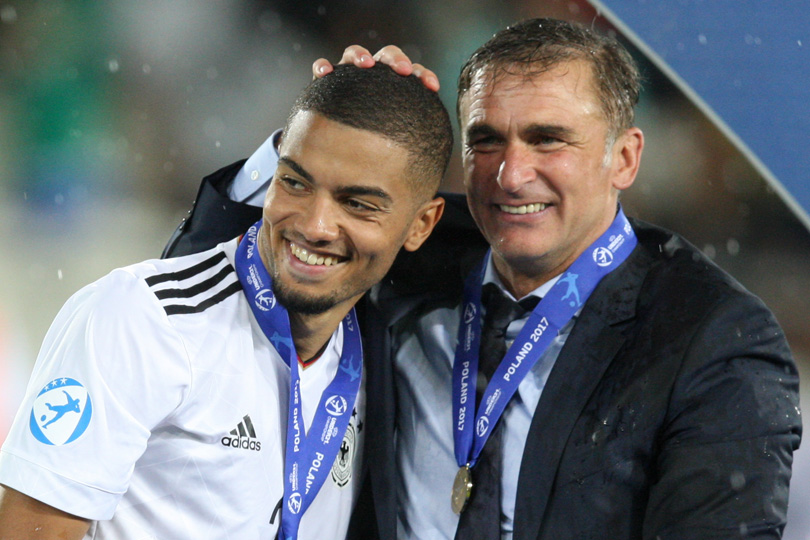
The final year of Toljan’s Hoffenheim contract has just begun and the next 12 months will bring a flurry of interest. The full-back, who can play on either side of the pitch, enjoyed a strong group stage in Poland, but left an even bigger impression on the knockout rounds.
Slightly removed from the modern full-back default of having blinding pace and a lackadaisical attitude towards defending, Toljan is more of a position-based player. Although he bears little stylistic comparison, the 22-year-old is reminiscent of a young Pablo Zabaleta: always in the right place at the right time, whether that’s in his half or his opponent’s.
His real value in Poland was as an extra man. Stefan Kuntz’s midfield three naturally drew a lot of defensive attention, with teams congesting the middle of the field to restrict the impact of Meyer and Arnold. The result of that was space in wide positions and, game after game, Toljan found himself as the spare man. As his cross for Mitchell Weiser in the final proved, he knows what to do with that space.
A fine tournament from a player who will likely become a Champions League regular over the next decade – perhaps even with Hoffenheim next season.
9. Demarai Gray (England)
Two brief substitute appearance aside, Gray’s tournament didn’t really begin until the final group game. Part of Aidy Boothroyd’s creative solution to a lack of penetration, the Leicester winger was repurposed against Poland as part of a fluid three-player forward line which gutted the hosts' defence in a 3-0 win.
He isn’t quite a Leicester regular yet, but when he has appeared for them it has typically been in a wide role. His time with England, however, showed his value in central positions – not just his abilities as a finisher, but also the range of issues he creates for centre-halves who don’t have the pace to cope with him when he surges forward, but also struggle to subdue him when he drops back.
Gray is tricky, quick, and enjoyable to watch, but Poland 2017 exposed his more cerebral qualities. He clearly absorbs tactical instruction well, and has that kind of adaptability which will endear him to any manager.
His contribution to England’s performance (two goals, one assist) was clearly important, but he returned home having shown that he doesn’t only belong in that 'winger' pigeonhole. The 21-year-old can play all sorts of attacking positions, each to a high standard.
Seb Stafford-Bloor is a football writer at Tifo Football and member of the Football Writers' Association. He was formerly a regularly columnist for the FourFourTwo website, covering all aspects of the game, including tactical analysis, reaction pieces, longer-term trends and critiquing the increasingly shady business of football's financial side and authorities' decision-making.
